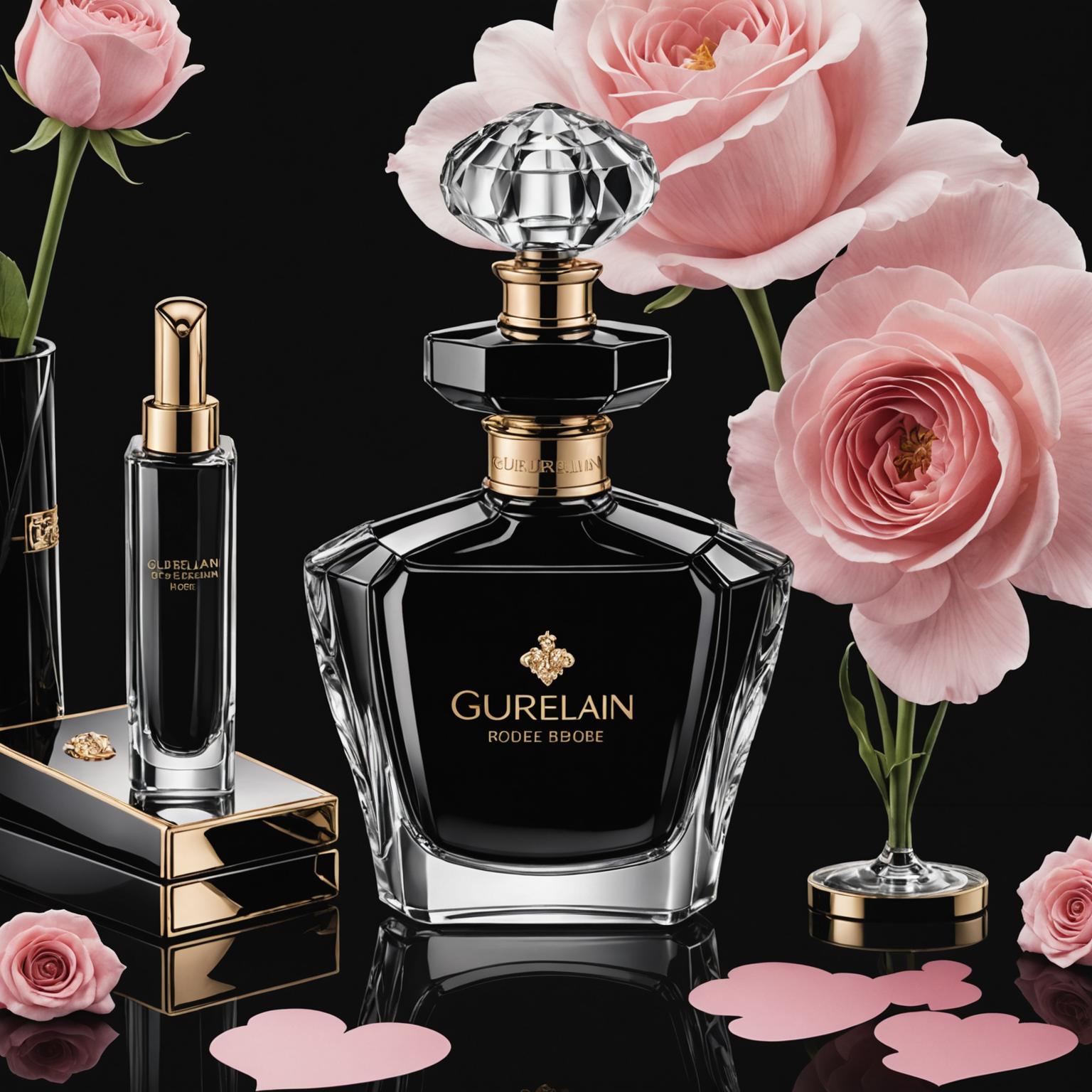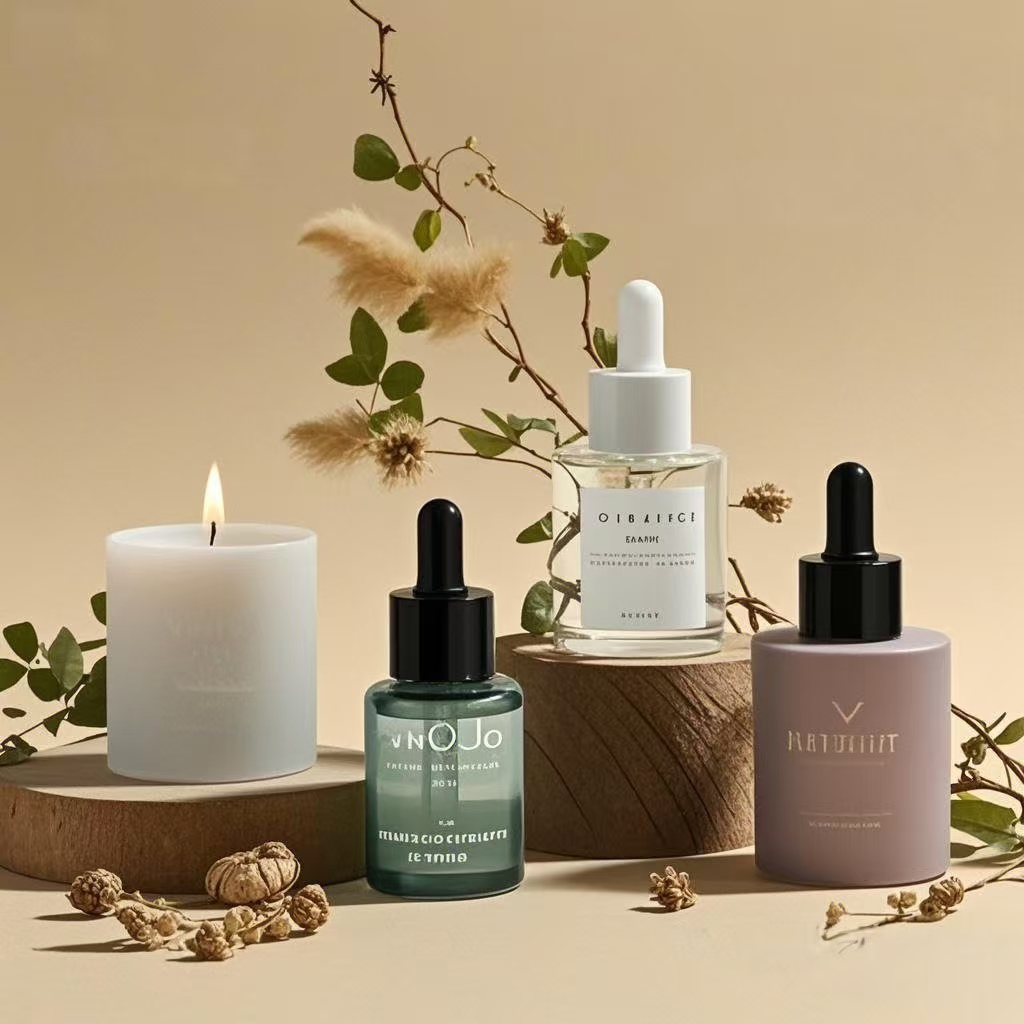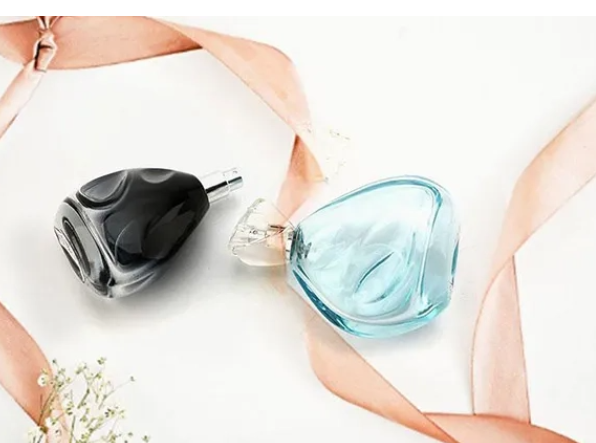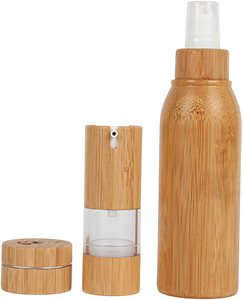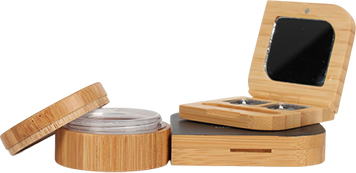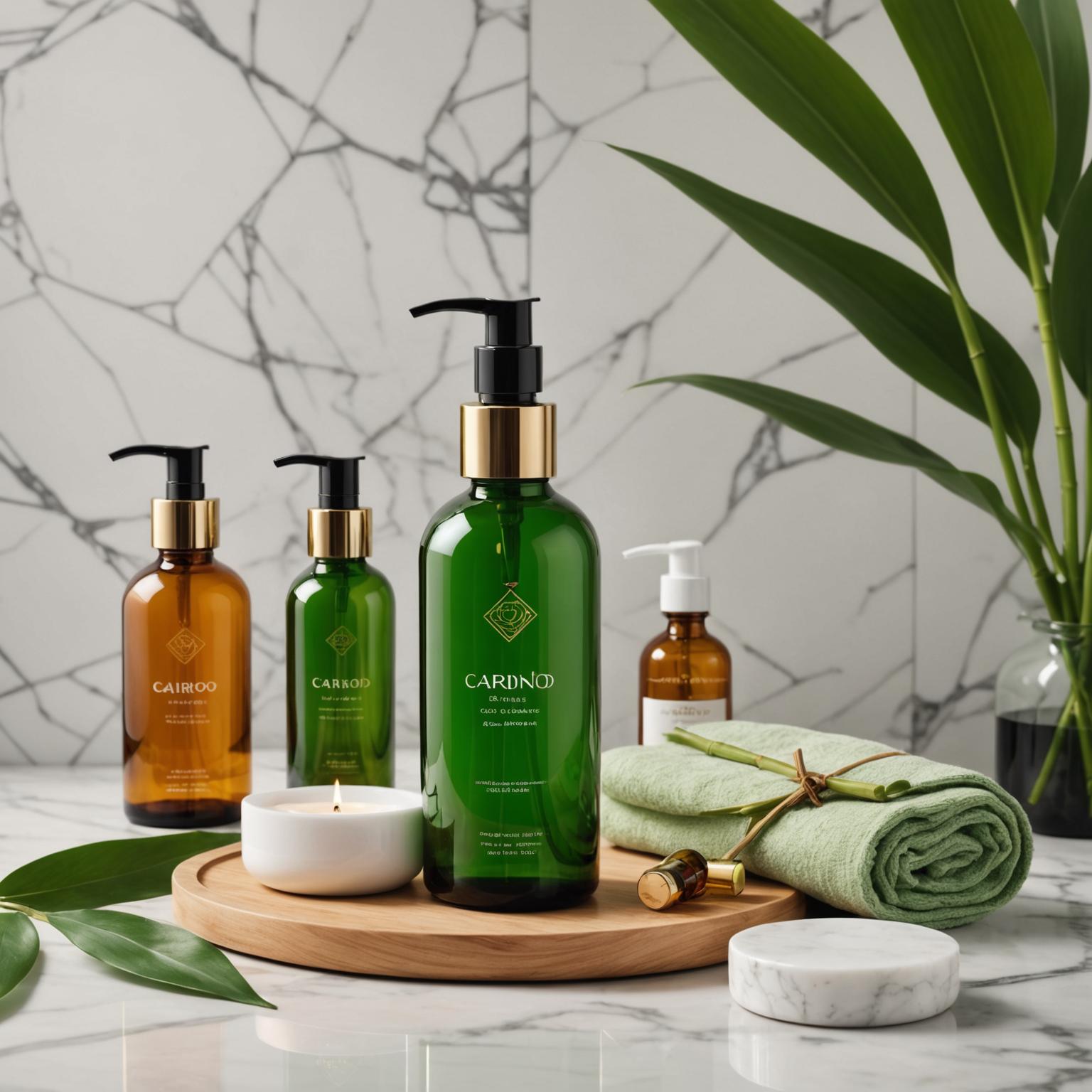The U.S. eco-friendly packaging market is booming —Grand View Research predicts it will reach $24.1 billion by 2030—thanks to two key trends:
Consumer demand : 73% of US consumers say they are willing to pay 10% more for products with sustainable packaging (Nielsen data). Keywords such as "PCR plastic" and "plant-based packaging" are now among the top search terms for fast-moving consumer goods and beauty brands.
Regulatory pressure : States like California and New York have banned single-use plastics, and the EPA’s National Recycling Strategy mandates a 50% recycling rate by 2030. Brands that use non-recyclable or non-renewable packaging could face fines and reputational damage.
For brands hoping to rank on the first page of Google search results for "US brands eco-friendly packaging" or "sustainable bottle suppliers," creating content around polymerase chain reaction (PCR), sugarcane-derived materials, and wood-composite packaging isn't just a marketing tactic—it's a necessity. These three materials address core pain points for US brands: reducing their carbon footprint, meeting certification requirements, and attracting environmentally conscious buyers. The following article explores each option in depth, focusing on specific considerations within the US, such as supply chain proximity, import regulations, and local certifications.
1. Branded eco-packed PCR bottle supplier: "recycled" gold standard that meets US standards
Post-consumer recycled (PCR) plastic bottles are made from materials like old water bottles, food containers, or packaging waste that would otherwise end up in landfills or the ocean. For US brands, partnering with a reputable PCR bottle supplier to provide branded, eco-friendly packaging is one of the easiest ways to achieve recycling goals and build trust.
Why PCR bottles are suitable for American brands
Regulatory compliance : PCR plastics meet the U.S. Environmental Protection Agency (EPA) recycling targets and qualify for state-level incentives (e.g., California’s Recycled Materials Incentive Program). Most PCR suppliers also offer FDA-approved bottles for food, beverage, and cosmetics brands, which is crucial for compliance in regulated industries.
Reduced carbon footprint : Using PCR plastic reduces greenhouse gas emissions by 70% compared to virgin plastic (EPA data). This is a key selling point for brands targeting Gen Z and Millennial consumers, who value the claim of being carbon neutral.
Google search traction : Search terms like “US brand PCR plastic bottles” and “eco-friendly PCR packaging supplier” have grown 120% over the past year (Google Trends). Showcasing your PCR partners on your website can boost SEO performance for these high-intent keywords.
How to choose a PCR bottle supplier focused on the United States
Not all PCR suppliers are created equal – prioritize the following to avoid delays or compliance issues:
Percentage of recycled content : Look for suppliers that offer 50-100% PCR content (not just a "mixed" option). The higher the percentage of recycled content, the stronger your sustainability claims.
Local sourcing : U.S. suppliers (e.g., in Texas, Ohio, or California) offer lower shipping costs and a lower carbon footprint than overseas partners. They also understand U.S. labeling rules (e.g., the Federal Trade Commission’s (FTC) “Green Guides,” which ensure products meet truthful eco-claims).
Customization : Top suppliers offer branded PCR bottles (printed with your logo, color, or size) to maintain brand consistency. For example, a US skincare brand might work with a PCR supplier to create a 100ml recycled plastic bottle for its moisturizer.
American Brand Success Story: Practical Application of PCR Packaging
A mid-sized organic juice brand in Florida switched to 100% PCR plastic bottles in 2023. By partnering with a local PCR supplier, they:
65% smaller carbon footprint per bottle.
Within 3 months, it ranked third on Google searches for “PCR packaged organic juice.”
Repeat purchases increased by 22% (thanks to its "100% recycled packaging" label).
2. Sugarcane Plastic Bottle Factory: A US environmental leader's plant-based alternative
Sugarcane-derived plastic, also known as bio-based PET , is made from sugarcane ethanol, a renewable resource that absorbs CO2 as it grows. Sourcing from sugarcane-derived plastic bottle factories can be a game-changer for US brands looking to move beyond recycling and embrace “circular economy” practices.
Why sugarcane plastic resonates in the US market
Renewable vs. finite : Unlike virgin plastic (which is made from petroleum), sugarcane plastic relies on a renewable crop. This is attractive to US brands committed to "net zero" goals—because sugarcane absorbs CO2 as it grows, the material is generally carbon negative.
Certification Credibility : Top sugarcane plastic mills hold the USDA BioPreferred certification (a U.S. government certification for bio-based products) and the Confederation of British Industry (BPI) Compostable certification. These certifications help consumers confirm environmental claims before purchasing, building trust.
Uncompromising quality : Sugarcane plastic offers the same durability and clarity as virgin plastic. It's ideal for US beverage brands (e.g., craft sodas, cold-pressed juices) and beauty brands (e.g., shampoo bottles) that need packaging to protect their products during shipping.
Key considerations for US brands purchasing sugarcane bottles
Supply chain transparency : Choose mills that disclose their sugarcane sourcing practices (e.g., “sustainably grown in Brazil or Florida, without deforestation”). American consumers are increasingly demanding “traceable” and eco-friendly packaging—withholding this information could damage your brand.
Cost and Value : Sugarcane plastic is 15-20% more expensive than virgin plastic, but the return on investment is clear. A 2023 EcoLab study found that US brands using sugarcane packaging saw an 18% increase in brand awareness scores, which translates to higher prices and greater loyalty.
Imported vs. domestically produced : While most sugarcane plastic factories are located in Brazil or Southeast Asia, some US manufacturers (for example, in Louisiana, a major sugarcane-growing state) now produce small batches of sugarcane bottles. For brands that prioritize fast shipping, domestic factories can be worth the premium.
American brand success story: Application of sugarcane plastic in the beauty field
A US clean beauty brand launched its "Eco-Luxe" line in 2022, using bottles made from sugarcane plastic produced in a USDA-certified factory in Brazil. They:
The “USDA BioPreferred” logo is prominently displayed on its website and packaging.
The target keyword was “USA sugarcane plastic shampoo bottle” and it ranked second on Google within 2 months.
Received coverage from Allure and Well+Good for its "plant-based packaging innovations."
3. Wood Composite Packaging Bottle Wholesaler (Brand): High-quality natural choice of American handmade brand
Wood composite bottles are made from a blend of recycled wood fibers and non-toxic adhesives like corn starch. They are biodegradable and compostable, and have a unique, rustic aesthetic, perfect for artisanal American brands (think craft beer, gourmet honey, luxury candles) looking to stand out on shelf.
Why wood composite bottles attract the American handmade market
Aesthetic differentiation : In a highly competitive market, wood-composite bottles stand out. American consumers associate wood with “handmade,” “natural,” and “local”—attributes that drive purchases of artisanal brands.
Compostability : Unlike plastic (even PCR), the wood composite bottle breaks down in a home compost bin in just six months (BPI certified), a key selling point for brands targeting zero-waste consumers (a $12 billion market in the US, according to Zero Waste Home).
Sustainable Sourcing : Top wood composite wholesalers use recycled wood from American sawmills (reducing forest waste) and avoid the use of toxic chemicals. This complies with US forestry standards (such as FSC certification) and attracts environmentally conscious buyers.
How to cooperate with wood composite packaging bottle wholesalers (brands)
For US brands, it's often easier to work with wholesalers (rather than dropshipping factories)—wholesalers handle bulk orders, customization, and shipping. Prioritize the following:
Flexibility in bulk ordering : Artisanal brands typically require smaller batches (500-5,000 bottles), while large consumer product companies don’t. Choose a wholesaler with a lower minimum order quantity (MOQ) to test the market.
Custom branding : Look for companies that offer laser engraving or screen printing services (for example, an American craft brewery might engrave its name on a wood-composite beer kettle to enhance its high-end image.)
US distribution : Wholesalers with warehouses in the US (e.g., Oregon, North Carolina, or Pennsylvania) can ensure fast delivery – crucial for smaller brands that can’t afford long lead times.
American Brand Success Story: Wood Composites in Gourmet Food
A family-owned gourmet honey brand in Vermont partnered with a US wholesaler to switch to wood composite jars in 2023. They:
Highlighting “locally sourced wood composite materials” on its labels and website.
Within a month, the search for "gourmet honey in wooden composite jars" ranked first on Google.
The first batch sold out within two weeks, with 90% of customers citing the packaging as a “key reason” for their purchase.
PCR, sugarcane-derived materials, and wood composites: Which is best for your American brand?
To help you decide, we compared three options based on US brand priorities:
| factor | PCR bottle supplier | Sugarcane Plastic Factory | Wood composite material wholesaler |
|---|---|---|---|
| Environmental impact | Reduces landfill waste; produces 70% less emissions than virgin plastic | carbon negative; renewable resource | 100% compostable; made from recycled wood |
| US Certification | Complies with FDA, EPA, and FTC green guidelines | USDA BioPreferred, UK Food and Drug Administration (BPI), U.S. Food and Drug Administration | BPI, FSC (if using FSC wood) |
| cost | 5-10% more than virgin plastic | 15-20% more than virgin plastic | 20-25% higher than virgin plastic (high quality) |
| Best for | CPG, Beverages, Beauty (Mass Market Brands) | Net-zero brand, health-centric products | Handmade, luxury or zero-waste brands |
| Google Keywords | "US PCR plastic bottles", "recycled packaging supplier" | "American sugarcane plastic brand", "bio-based PET bottle" | "American wood composite cans", "handmade ecological packaging" |
How to Boost Your Google Rankings with Eco-Friendly Content
To rank on the first page of Google for your target keyword (e.g. “branded eco-packed PCR bottles supplier”), follow these SEO best practices:
Highlight keywords naturally : Include your target keywords in your blog title, header, meta descriptions, and image alt text. Avoid “keyword stuffing” and focus on readability.
Add US-specific data : Cite US research (e.g., Nielsen, EPA) and mention US states or cities (e.g., “California brands,” “PCR suppliers in Texas”) to indicate local relevance to Google.
Link to authoritative sites : Link to the USDA BioPreferred, BPI, or EPA pages to increase credibility. Also, add internal links to your product pages (e.g., "Buy our PCR plastic bottles").
Optimize for mobile devices : 60% of US searches occur on mobile devices (Google). Make sure your blog is mobile-friendly, with concise paragraphs and clear headings.
Encourage user engagement : Add a call to action (CTA), such as “Contact us to find the right eco-friendly packaging supplier for your US brand,” to reduce bounce rate (a key factor in Google rankings).
Conclusion: The path to eco-packaging success in the United States
Choosing between PCR bottle suppliers , sugarcane-derived plastic factories , and wood composite wholesalers depends on your branding goals:
If you want to meet recovery targets and keep costs low: choose PCR.
If you’re after net-zero emissions and need renewable credentials: choose sugarcane-derived plastic.
If you’re a handcrafted brand that wants to stand out: choose wood composite.
Whichever path you choose, prioritizing US certifications, local supply chains, and SEO-friendly content will help you rank high on Google and win over eco-conscious consumers. The US market for eco-friendly packaging is booming—now is the time to invest.




